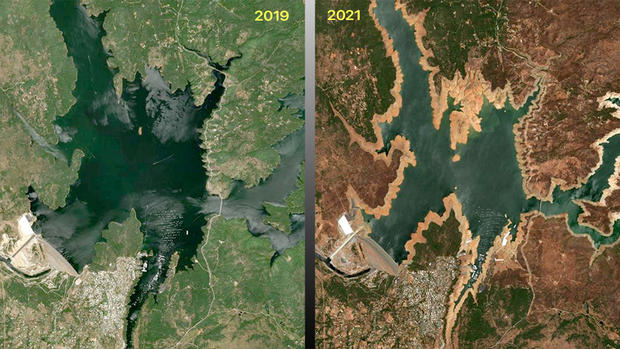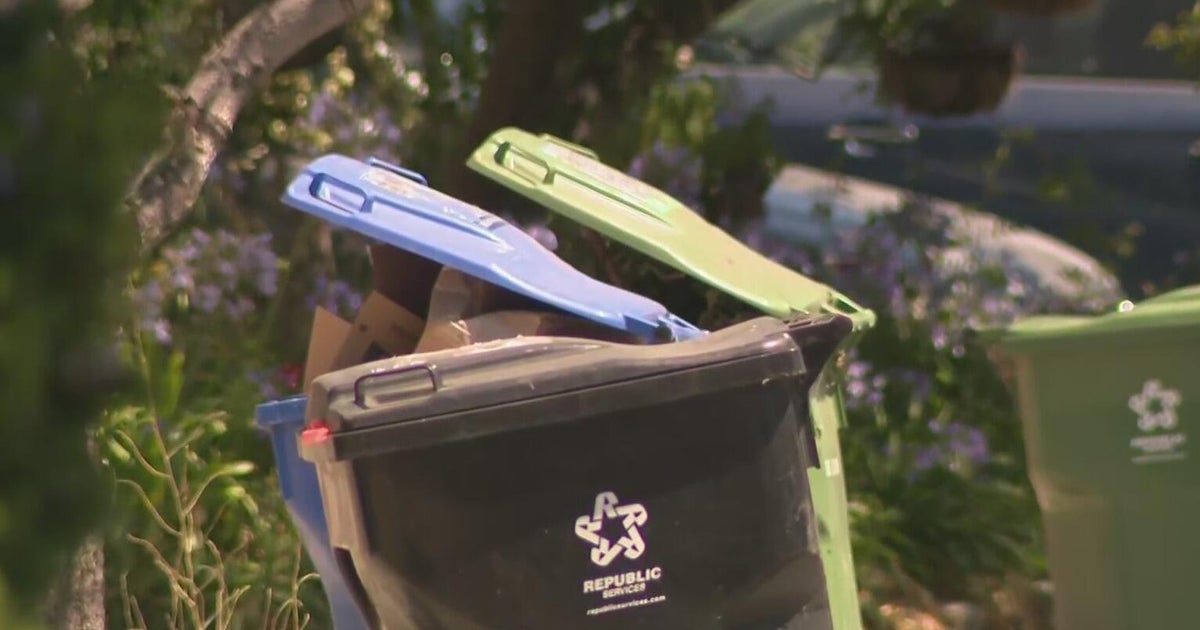Lake Oroville Level Likely to Fall So Low Hydro-Power Plant Will Shut for First Time
SAN FRANCISCO (CNN) -- Water at Lake Oroville, a key Northern California reservoir, is expected to fall so low this summer that its hydroelectric power plant will likely be forced to shut down for the first time since it opened in 1967.
An unrelenting drought and record heat, both worsened by the changing climate, have pushed the water supply at the reservoir behind the Oroville Dam to deplete rapidly. As a result of the "alarming levels," officials will likely be forced to close the Edward Hyatt Power Plant for the first time, California Energy Commission spokesperson Lindsay Buckley told CNN.
The water in Lake Oroville -- the state's second largest reservoir -- is pumped through underground facilities to generate electricity, which can power up to 800,000 homes when operating at full capacity.
While the water level in the reservoir is currently hovering around 700 feet above sea level, if it continues to fall at the currently projected rate to 640 feet there will not be enough water to continue operating the Hyatt plant in two to three months, coinciding with the typical peak of the summer heat and wildfire season.
"If lake levels fall below those elevations later this summer, DWR will, for the first time, cease generation at the Hyatt power plant due to lack of sufficient water to turn the plant's electrical generation turbines," said Liza Whitmore, public information officer of DWR's Oroville Field Division.
As of 2018, hydro-power plants generated around 13 percent of the state's electricity. Hyatt power plant is the fourth largest hydroelectric energy producer statewide, according to the state's energy commission. Due to the already low water supply at Lake Oroville, the plant's output has been reduced to 20 percent of its total capacity and officials have relied on other facilities to avoid major power interruptions to homes and businesses, Whitmore said.
A hydroelectric plant downstream of the Hyatt facility in California will also operate at reduced levels this summer despite increased power demands during the typical summer peak, Whitmore said.
In addition to encouraging power-saving measures, officials statewide are urging Californians to reduce their water consumption as much as possible during the hot summer months ahead. They recommend curtailing water use by taking shorter showers, fixing leaks at home, planting drought-tolerant trees, and reduce watering home landscapes.
Some officials in Northern California have already taken a stricter approach by declaring a water shortage emergency and issuing mandatory water restrictions that are punishable by fines for noncompliance.
© Copyright 2021 CNN. All Rights Reserved. This material may not be published, broadcast, rewritten or redistributed




